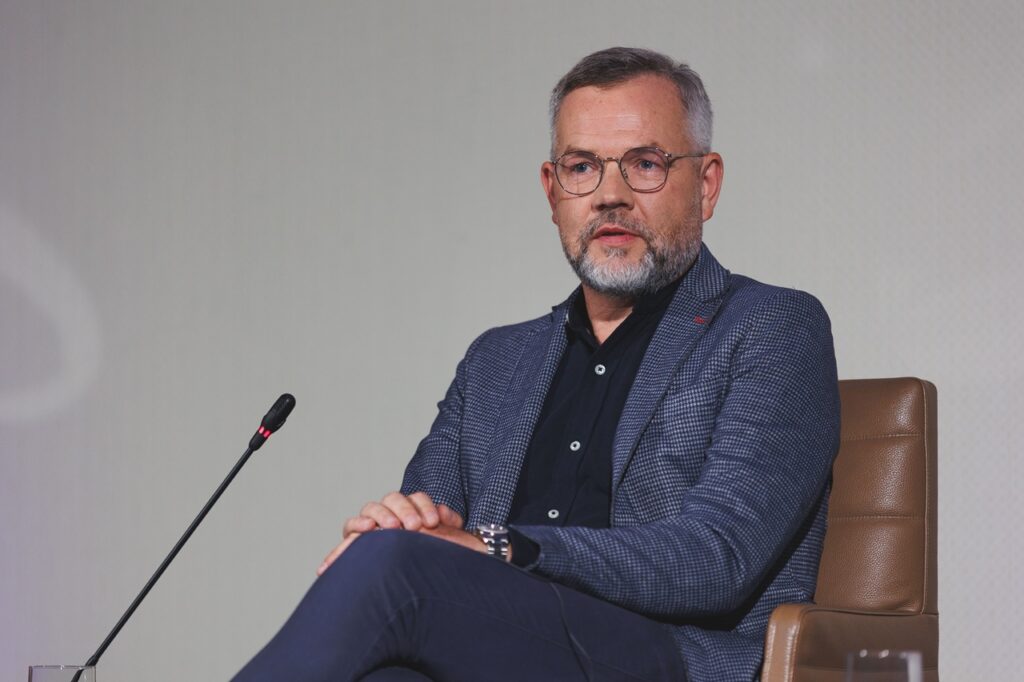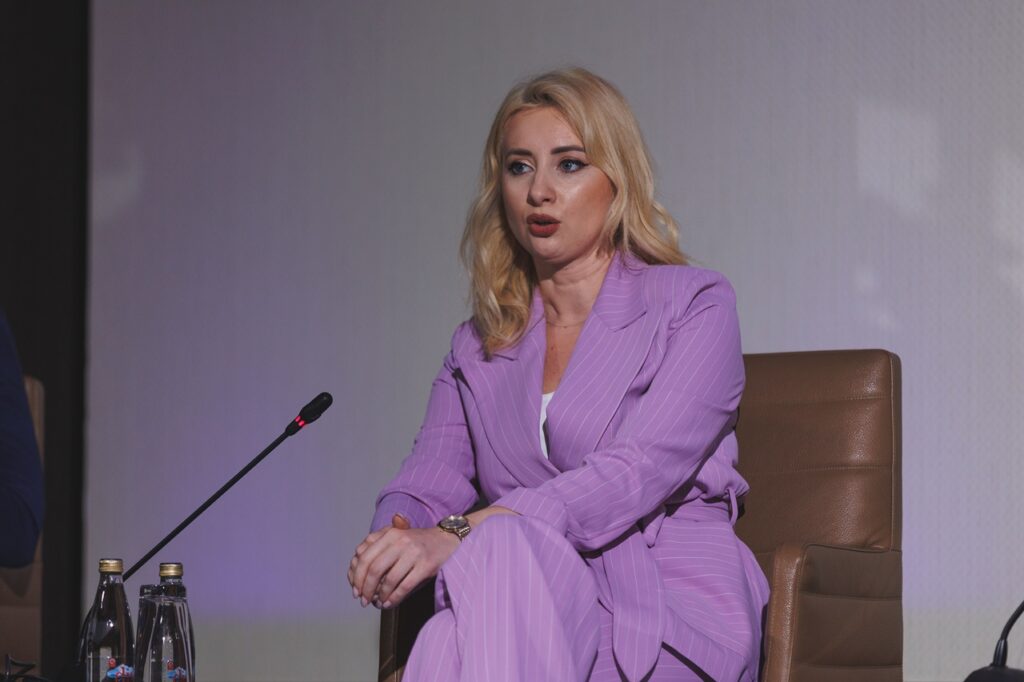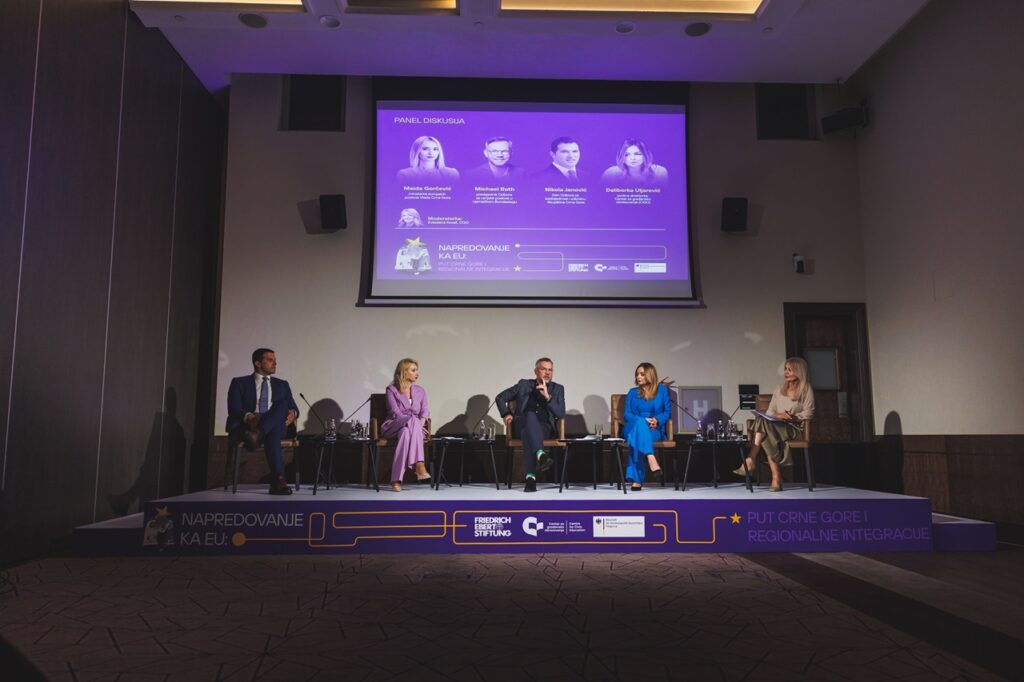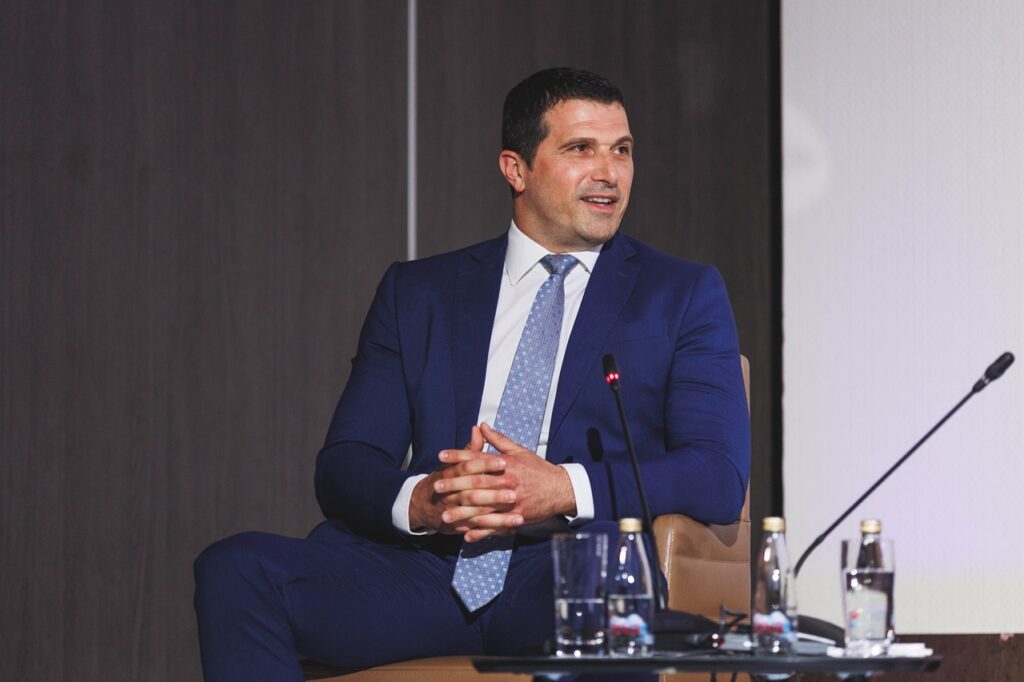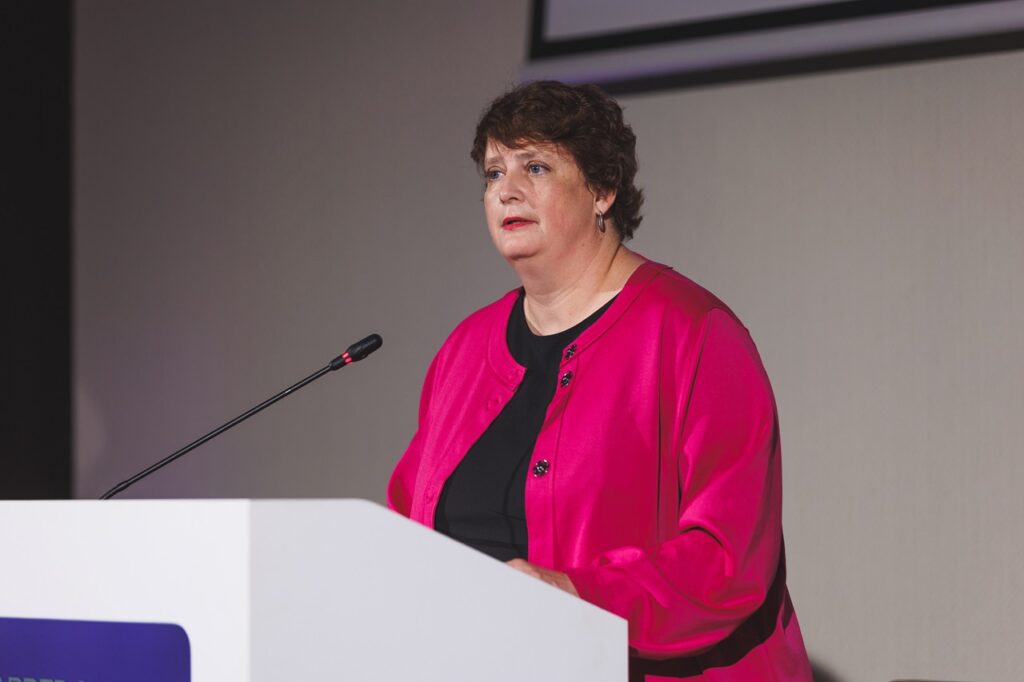Montenegro is at crossroad and has a real opportunity to quickly join the European Union (EU), it was concluded at the panel discussion “Advancing towards the EU: Montenegro’s Journey and Regional Integration,” organized by the Centre for Civic Education (CCE) and the Friedrich Ebert Foundation noting that the EU is, above all, a union of values.
Chairman of the Foreign Affairs Committee in the German Bundestag, Michael Roth assessed that the geopolitical argument is crystal clear. “The Western Balkan states must join the EU as soon as possible, because if a political vacuum arises in this region, authoritarian regimes will step in. Therefore, we must be louder and more visible,” Roth said.
He reminded that for years, Montenegro was the frontrunner in the process and a success story of the Western Balkans for years, but the neglect of the principles of the rule of law, media pluralism, and similar issues by leaders in Montenegro led the country into a political deadlock. “We have not seen any material progress in the desired direction. With the new government and majority, I see that kind of progress, even in very complicated relationships,” Roth said.
According to him, everything is now “overshadowed” by the aggression against Ukraine, which goes beyond a territorial war. “This is a war against our values. That is why we must stop Russian imperialism and send a clear message to the Western Balkans,” Roth stated. In that context, he emphasized the significance of Montenegro aligning its foreign policy with the EU, implementing sanctions against Russia.
Roth stated that he is aware that he is aware that due to the war in Europe, many in the Western Balkans are worried they might be forgotten, given that Europe’s focus and engagement are directed towards the east. “For the first time, we are opening our doors to Georgia, Ukraine and Moldova. However, this does not mean in any case to neglect or ignore the interests of the citizens in this region,” said Roth.
He pointed out that full commitment to freedom, democracy, and the rule of law is expected from a country that wants to join the EU. “I believe that now is the decisive moment to support Montenegro to once again become a leader in the Western Balkans again. I see a real opportunity for Montenegro to join the EU by 2028,” Roth underlined.
He assessed that the situation in the Western Balkans is quite worrying, with the rise of populism and nationalism polluting the political environment, although this is not only the case in the Western Balkans but across Europe.
Rot emphasized that the EU is, above all, a community of values, which are binding for all.
Referring to the recently adopted Resolution on Srebrenica in the UN General Assembly, he said that recognizing and acknowledging the genocide in Bosnia and Herzegovina is a significant step forward. “I commend the Government of Montenegro for being brave enough to vote for that resolution. I encourage you all to continue this path of building reconciliation in the region,” Roth said. He pointed out that the Western Balkans need reconciliation, but reconciliation that does not rest on truth and humanity will not be true reconciliation. “Please do not follow the dirty narrative of (Aleksandar) Vučić. No one wants to blame the Serbs; the concept of collective guilt is nonsense, guilt is always an individual matter,” Roth said.
Minister of European Affairs, Maida Gorčević, stated that by the end of June, after the expected receipt of the Interim Benchmark Assessment Report (IBAR), Montenegro will be halfway there. “We face many challenges in closing chapters and everything else that awaits us. Despite the challenges, Montenegro will not give up on the European path because of all the citizens who expect and want the country to become an EU member,” Gorčević said.
She noted that the government has demonstrated a serious approach to European integration in just over seven months, prioritizing chapters 23 and 24, and announced that a set of media and judiciary laws would be discussed in today’s government session. She explained that it involves 11 laws adding that after the vote in the government, they will be able to send a message to the public that the government has done its part and that the next part is up to the Parliament. No law, she emphasized, will be worked on without the consent and approval of the European Commission (EC).
According to Gorčević, Montenegro is at a crossroads. “The government has already done everything that was up to us. Montenegro is being tested, and it’s now up to the Parliament on how it will handle these laws,” Gorčević stated.
She also emphasized that the government is fully aligned with the EU’s common foreign and security policy, which, she stated, will not change by even a millimeter. “Through all its actions, the government has shown a serious and responsible attitude. The government leads internal and foreign policy, and regardless of who constitutes the parliamentary majority, it is ultimately the government that votes,” Gorčević said.
Asked about the proposed Resolution on Jasenovac, she said that she could not comment much since the proposal did not come from the Government. “How it might affect our relations with Croatia, especially considering other issues like Prevlaka and the Jadran ship, I believe we really must show a statesmanlike approach and wisely conduct our policy, so as not to jeopardize our European integration in any way,” Gorčević said.
She also said that attention must be paid to respecting victims and reconciliation, assessing that it is very important for the entire society.
Daliborka Uljarević, the Executive Director of CCE, agreed that Montenegro is at crossroads, but one “where we choose whether we will continue the current process through fake reforms or break with old particularistic politics and focus on the public interest”.
“We all remember the first enthusiastic and dynamic period after opening negotiations, but also the one when the authorities realized that further process undermines monopolies of power and when slowing down occurs, and later practically stopping the whole process,” Uljarević said.
She believes that there is still no strong enough political will to change this approach and warns that without changes in bad governance practices, even getting the IBAR will not change things. She also assessed that civil society has never been less involved in the processes of drafting strategic and legislative texts.
“We have also returned to laws being tailored to particularistic and party needs and drawn to the likeness and work of certain people needed by certain political structures,” Uljarević said, highlighting changes that the government, at the last moment, is making to the RTCG Law in the part of lowering criteria for selecting Council members and the General Director, assessing that these are not good European practices.
“We had the opportunity, through the work of previous governments, to see that such situations later led to serious problems. I fear we will have the same if we continue down this path and that we will disappoint our friends in Europe,” Uljarević said.
She also emphasized that the EU is a union of values. “However, in our narrative, other things are insisted upon. And if you look back, from the fall of the DPS government, through the fall of the Krivokapić government and the Abazović government, they essentially fell on value issues,” Uljarević added.
She said that politics is not mathematics as it is being attempted to be set up in the current political constellation. “And, of course, then turbulence quickly occurs when you have to face what are values, attitudes, positions, and we saw that through the issues of Srebrenica and Kosovo,” Uljarević said.
She believes that the EU genuinely wants Montenegro to progress quickly. “But I am not sure how much the Montenegrin authorities want it, especially in terms of value positioning, because values are not about party calculation, and clear value commitment can also be costly,” Uljarević emphasized.
She said that apart from Montenegrin citizens hoping that joining the EU will make their lives more dignified, they also hope that this path will dignify the state, make decision-makers accountable, and bring substantial and quality changes. “Therefore, it is essential for the Government of Montenegro to act honestly, not to do what previous governments did through these laws, and for the EU to assess everything honestly so that we do not end up in the situation that North Macedonia is in now,” Uljarević stated.
Nikola Janović, a member of the Parliamentary Committee on Security and Defense, believes that Montenegro, given the geopolitical context, could be a positive example when it comes to European integration and called for joint efforts by both the government and the opposition to meet the expectations of 80% of Montenegrin citizens who want to see Montenegro in the EU.
Janović assessed that there are no easy or difficult questions. “When you are power and government, you must resolve everything on the agenda, and when you are in opposition, perhaps you don’t have to,” Janović stated.
He noted that the divisions in Montenegro are deep and date back a long time. “I am the first to say that we must overcome these divisions, not leave certain national topics to our children,” Janović added. He said that many politicians, who are in the government and the parliamentary majority, say that “we should all be united, reconcile and work on the prosperity of the state, and then exclude one political option behind which over 70,000 citizens stand.”
Janović argued that this is not the right way. “I believe we should build this state together, and the EU will respect us more when it sees that we know how to talk among ourselves,” Janović concluded.
Answering a question about the proposed Resolution on Jasenovac, and after Minister Gorčević’s comment that it pertains to the Parliament and not the Government, Janović noted that it is hard to separate the parliamentary majority from the Government. “After voting for the Resolution on Srebrenica, it seems Montenegro was ordered to now pass a Resolution on Jasenovac,” Janović said, recalling that during Vučić’s rule in Serbia, a Resolution on Jasenovac was twice rejected in the Serbian Parliament with the justification that it could jeopardize the country’s European path.
“What particularly worries me is that, for some reason, the government and ruling majority show a need to not lead our policy independently, but to try to surf politically between directives coming from abroad,” Janović stated.
This, he argued, undermines the fundamental values on which Montenegro is built.
The German Embassy’s Chargé d’affaires in Podgorica, Ralf Reusch, during the opening of the meeting, assessed that in the previous months, Montenegro made significant progress on the way to the EU, in terms of initiated judicial reforms, as well as processes concerning the media sector.
Director of the Regional Office of FES in Belgrade, Kirsten Schönefeld, stated that there is a common understanding today that the six Western Balkan countries are an integral part of the European family and, as such, must become full members of the EU.
“From my perspective, I would say that unfortunately, we have lost a lot of time in the past 20 years since the Thessaloniki Summit. However, we are now seeing a new dynamic due to changes in the geopolitical situation since 2022 and Russia’s aggression against Ukraine. We now have a renewed commitment, not only from Germany but from the entire EU, regarding the integration of the Western Balkans, and this opportunity should not be missed by the countries in the region,” said Schönefeld.
She added that it is clear that the elapsed time has led to certain disappointments in the Western Balkan countries. “In some countries, this has even led to a situation where citizens increasingly support the integration of their country and the region into the EU less and less,” Schönefeld said.
However, she noted that this is not the case with Montenegro. “Mr. Reusch gave a nice introduction to the dynamics of what has been happening in Montenegro in recent months. We welcome this and hope that the process will continue, despite the debates and discussions concerning past issues,” Schönefeld stated.
MINA

